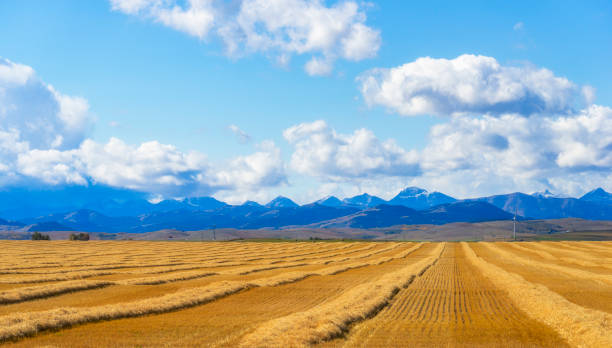Alberta could become next rice producer, researchers say

Posted Aug 6, 2022 5:04 pm.
Last Updated Aug 7, 2022 3:42 pm.
Alberta could grow rice using a new technology from Korea called Seed Film Cultivation (SFC), according to a research at the University of Lethbridge (UofL).
Dr. Michele Konschuh, a research associate in the Department of Biological Sciences at UofL says the SFC helps soil to warm, prevents moisture loss, and prevents weeds from taking root.
“It’s essentially a biodegradable plastic layer that they attach the seed to and lay over moist soil,” Konschuh said.
Could rice be the next crop to be grown in southern Alberta? #Ulethbridge's Dr. Michele Konschuh is collaborating with Galaxy Ag Ventures and Farming Smarter Association to find out. Read more on UNews: https://t.co/2dAEZHvbf8 pic.twitter.com/FJ0SZUbRuq
— ULethbridge (@uLethbridge) August 2, 2022
She adds the biodegradable plastic layer is supposed to help the rice grow and it needs 180 days to biodegrade.
“The plastic shouldn’t affect the rice at all,” Konschuh said. “It shouldn’t affect the rice quality … it might help the rice reach maturity in our climate.”
She says Alberta has a long history in producing high quality crops, and this project can add some diversity in its crop production.
“If it gets added to our production … it will provide some diversity and another opportunity for producers.”
“This year we have a small trial looking at three types of planting systems, and two types of irrigation, and two varieties,” Konschuh said. “We’re just trying to learn what type of germplasm we would need to find to make rice as suitable crop for this area, and if the rice production can be done here, we would have to use an upland rice system where we use a lot less water and mechanization.”
Rice grows in hot and humid weather conditions, in regions that have lots of water and prolonged sunshine.
However, Alberta’s climate is cold, dry, and the growing season is short. Also, the summer days are long.
The experiment has made its way to the field this spring after “a short-term pilot project.”
READ MORE:
-
University of Calgary research aims to tackle the needle fear in young kids
-
The scandal that could undo 15 years of Alzheimer’s research
-
Discrimination causes disease and aging, researchers warn
Konschuh says they used three methods for planting, including the SFC technique, transplanting plants grown in a greenhouse, and direct seeding.
The experiment also included two types of irrigation in southern Alberta: pivot irrigation which is overhead, and subsurface drip where the plants are watered from below.
“All three methods of planting have been successful so far,” she says. “What we don’t know is if we can get them all the way to rice seed production and maturation by fall. This is really early steps and the nice thing is that both B.C. and Ontario have successfully grown rice. So, we know rice can grow in Canada; what we don’t know is if rice can grow in Alberta because our conditions are a little bit different.”
The project is in its preliminary stage, where the researchers are trying to figure out the best strategies to plant it and the best ways to water it.







